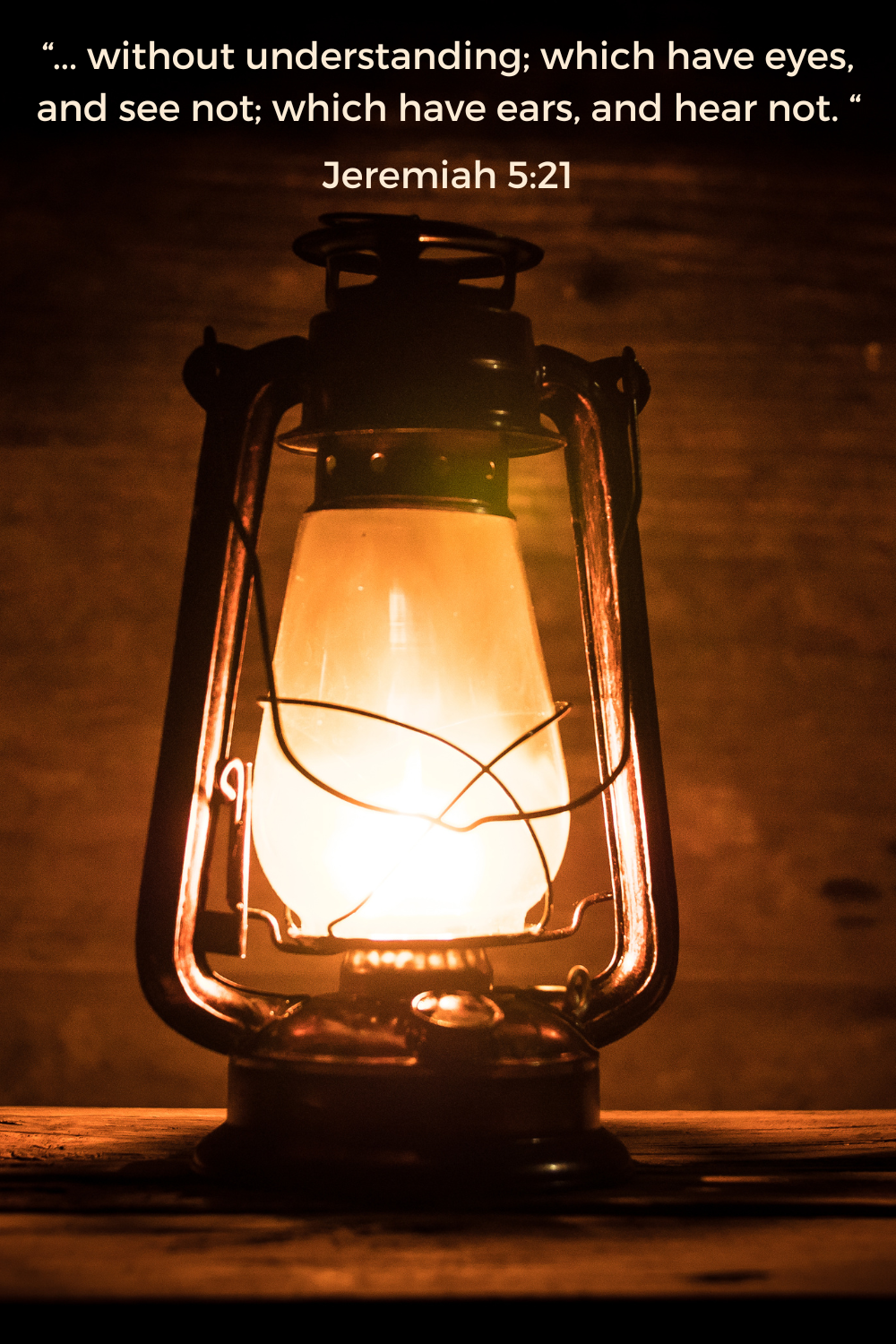 SUNDAY SCHOOL LESSONS
SUNDAY SCHOOL LESSONS
Our ability to understand and make an accurate judgment is aided by the light of seeing from another’s perspective and from the wisdom of God’s laws.
An online search around this subject resulted in many versions of this bedtime, short story entitled, “The Man with a Lamp” which sheds light on types of blindness.
The story goes that a blind man lived in a little town. Even though he was blind and could not see in daylight or in darkness, he always carried a lighted lamp with him when he went out at night.
One night when the blind man returned from dinner, he ran into a group of travelers. They noticed he was blind, yet he carried a lantern. In one version, the townspeople found him somewhat mad. In another, the travelers thought him foolish. In both, the blind man was mocked, and derisive remarks were made. One man asked him why is it that he carry a lantern if he was blind.
The blind man explained that indeed he was blind and had no vision. But the lamp was for people who can see. Because even with sight, at night the streets are dark and it helps them to make their way. And even, they might bump into a blind man.
The young travelers now with greater insight, apologized for their actions.
The sighted men could physically see, yet they were blind in their judgment and lack of understanding. They had no desire to take the time to ‘shed light,’ to choose to understand and be compassionate. They reacted from the closedness of their minds, and they did not ‘see’ the blind man’s point of view.
On the other hand, the blind man held the lantern. While physically blind he held the light, the physical light, and the insight.
His actions highlight God’s commandment, “So in everything, do to others what you would have them do to you, for this sums up the Law and the Prophets” –Matthew 7:12
His lamp helped others see. While it is true that it helped others not bump into him, it also illumined the darkened path for them as well.
The question is, do we reach for the light, for God’s light, when we are in the dark? when someone’s actions are different than ours or seem odd? Or do we react, as the travelers, jumping to conclusions and making assumptions before we seek understanding? Which?
Two statements shine more light on this, “None are so blind as though who will not see.” (1546, Heywood) and “It is better to be blind than to see things from only one point of view.” ~ Indian Proverbs
May we seek the light, the higher sight of the Lord, and see through His eyes of love and compassion.

 SUNDAY SCHOOL LESSONS
SUNDAY SCHOOL LESSONS